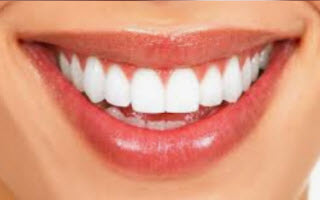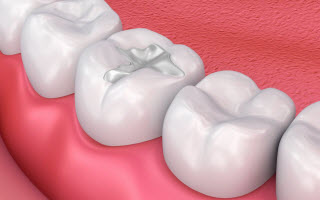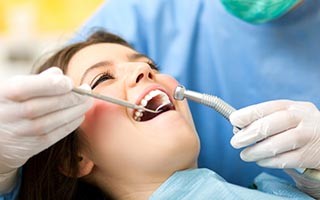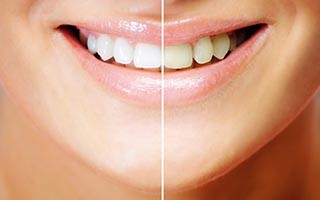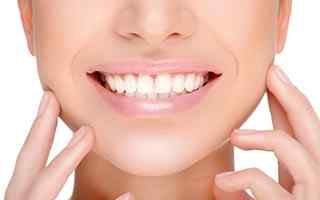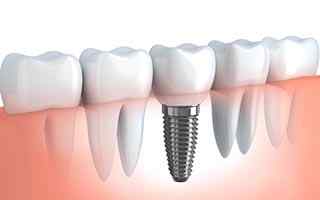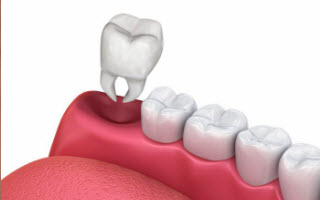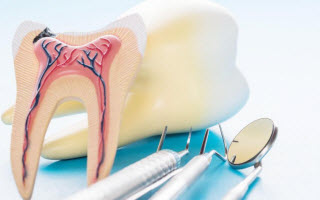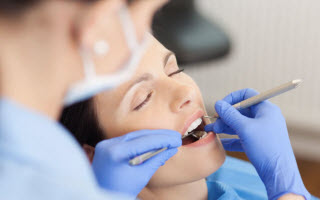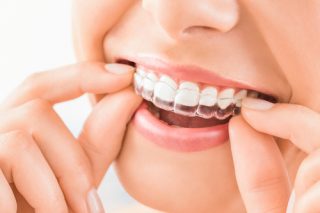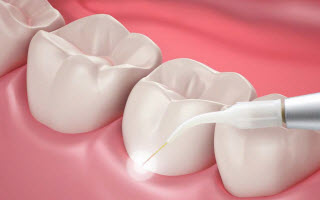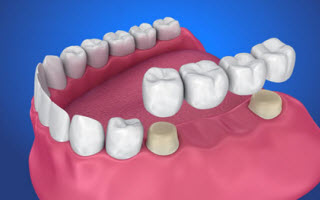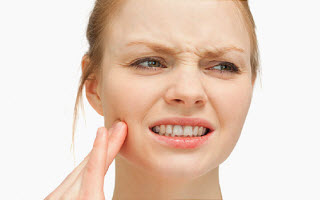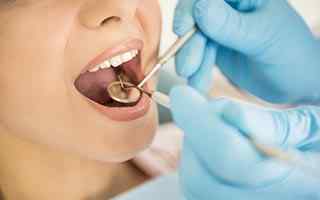TMJ Treatment in Santa Monica
Dr. Ali Mogharei offers expert TMJ treatment in Santa Monica, Culver City, Venice, and Brentwood. Dedicated to enhancing both the health and aesthetics of his patients' smiles, Dr. Mogharei provides personalized TMJ solutions tailored to meet each individual's unique needs.
Frequently Asked Questions About TMJ Treamment
Temporomandibular joints (TMJ) which are also known as the joints of the jaw are the joints that connect the mandible to the skull. These joints are vital since they help us to speak and eat. These joints are often used and when they are affected they can really cause a high level of uncomfortability. TMJ disorders can be elusive due to the complexities involved.
The causes of TMJ disorder are varied and many which cause the tension between the joints and the skull.
-Some of the causes of TMJ disorders are:
-Improper alignment of the disks
-The cartilage of the joints getting damaged due to arthritis
-The damage of the joint due to impact or force
-Jaw injury
-Clenching of the teeth for a very long period
-Connective tissue diseases
TMJ disorder at times gradually develops with some structural problems right after birth known to be causing TMJ. Other people could be suffering due to an earlier jaw injury. Others could develop the disorder due to a tumor and rheumatoid arthritis.

TMJ Signs & Symptoms
As with many other medical conditions, TMJ has its own set of symptoms to help you identify whether you have it, know the right diagnosis and treatment. TMJ may affect the TM joints, head, ears, face and the mouth area especially the teeth.
Some of the symptoms include:
TMJ Clicking
This is one of the most common symptoms of TMJ where you notice the jaw movement causes a clicking or snapping sound. The snapping sound could be loud that any person near you can hear it when you move jaw by either talking or chewing. It may at times sound like a pop sound which happens due to the reason that a disc is displaced and there is a tension created between the muscles of where the two joints meet thus causing the clicking sound. The tense muscle of the jaw could cause facial, head, neck and muscle pain.
TMJ Locking
The locking of the jaws here is caused when there is the movement of the lower joint as it opens. This forces some people with TMJ to use the most comfortable side to help them open their mouth wide. A particular tension is created which causes a popping sound when opening your mouth to unlock the jaws.
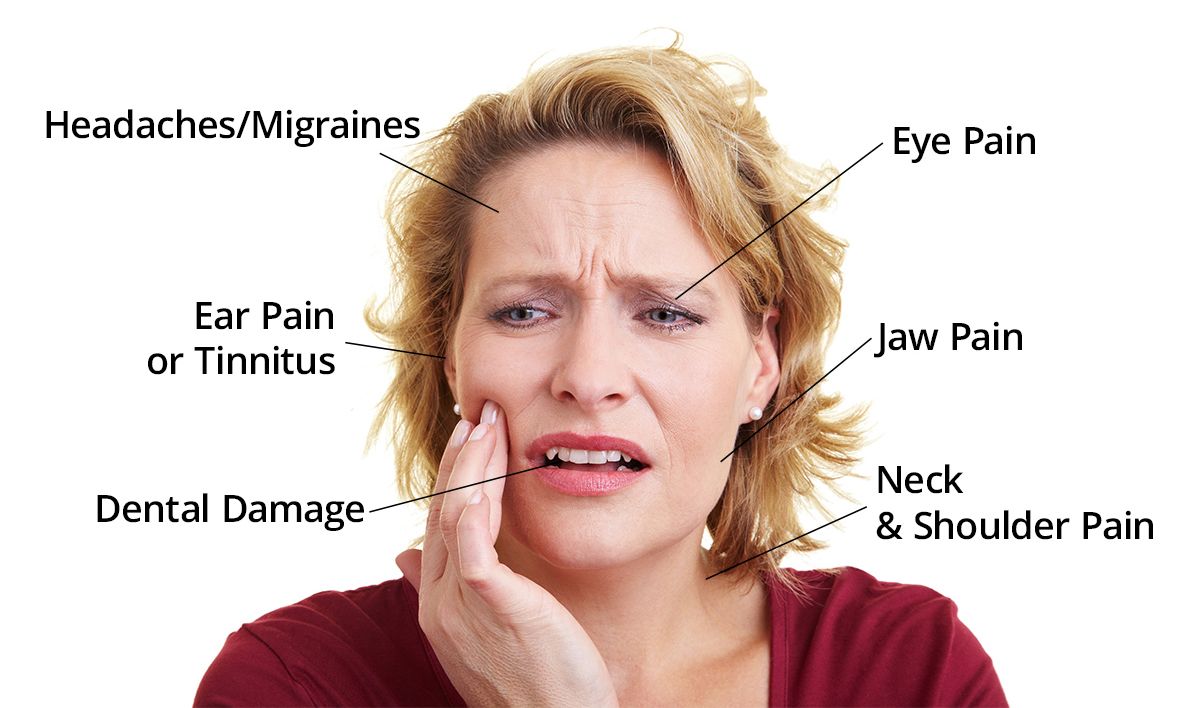
Change In Bite
Having an abnormal dental occlusion or bite might be an indicator that you may be suffering from TMJ. If the TMJ disc is misplaced the disc and the bones do not suit each other which causes the bite of the teeth to change.
Ear Symptoms
There are a huge relation and connection between the ears and the TMJs. The relationship simply translates to a direct effect on the ears. The ears may start to develop pain from the inside, there could be stiffness and even loss of the hearing ability. Most of the TMJ patients even find themselves seeing an ear specialist before visiting a dentist for the [possibility of TMJ.
Headache
Having a headache even though it may be indicative of other potential health conditions it makes up one of the most common symptoms of TMJ. With TMJ the headache tends to occur at the back of the head and the pain could even stream down to the shoulders. The headache may be elevated by simple things such as grinding and clenching of the teeth. Also, pain in the forehead or neck could be as a result of a displaced disc in the TMJ. The headaches that occur due to this condition are at times mistaken for migraines since they are so severe.
Sensitive Teeth
Teeth sensitivity could be experienced due to the jaw in and out activities such as grinding and clenching which might displace the disc of the TMJ. A person may even mistake this to be all about dental problems but after a visit to the dentist, the pain would still be a problem.
Other Symptoms
There many other many more symptoms that are associated with TMJ. Most of the time the pain is felt in the back and shoulders due to muscle contraction a condition known myofascial pain dysfunction syndrome. Disorientation, dizziness, and confusion are some of the symptoms some people go through.
Depression is another symptom which occurs due to the confusion related to what is causing the pain too many patients who are oblivious of what might be happening. When the patients experience severe pain it, in turn, causes changes in neurotransmitters which is a chemical that brings depression. Alongside the depression, there is a lack of sleep which is not good for anybody.
There could be patients who could suffer from light sensitivity. This happens due to the pain which might affect the eyes from the dislocated TMJ which leads to sensitivity due to light. So having blur vision or twitching to the eye should not appear as a surprise. Finally, a common symptom that people with TMJ could experience is tinnitus.
Your TMJ Treatment Options
For the TMJ treatment options, you can start by visiting a dentist and get an x-ray done on the mouth jaw part which is the first step you should take. This helps establishes whether your jaws are perfectly aligned. What goes on next is to consider pain management for TMJ. IN this process you can get a prescribed medication to help relieve the pain and reduce any inflammation. An option that people who have been affected by the disorder is to visit a dentist who conducts some Botox treatment and exercises to help realign the jaws and regain the normal teeth bite.
Having surgery is another option but it should be the last resort. Most medical and dental policies don’t cover TMJ treatment due to the complexity and confusion caused by the wide array of symptoms. Most of the plans accept to cover TMJ when the disorder is actually detected and it is actual damage.
Some doctors advise their patients suffering from this disorder to massage the jaws with a heating pad or even take anti-inflammatory medication. A device known as a bite plate can be used to help regain the proper alignment with supervision from a dentist or physician. Learning relaxation techniques also helps lower the pain.
There is a simple technique also used to counter this disorder and it’s known as hot and cold technique. This is a temporary way of doing things where the varying temperatures shrink the swelling of the tissues of the joint which helps to reduce muscle spasms giving the jaw a rest.
What people should understand is a treatment option for one patient may not work for the other. A combination of the treatment options may fail to work for some patients and work for the other. TMJ treatment procedures are tricky and that is why it is recommended that you try out all until you find the one for you. No one deserves to suffer from the TMJ disorder seek the necessary help and get the disorder diagnosed in time.
Frequently Asked Questions about TMJ Disorder
What is TMJ?
TMJ is a diminutive of temporomandibular joints. These joints are found near the ear where the jawbone attaches itself to the skull.
What is TMJD?
This is a disorder arising from TMJ. TMJD is often accompanied by a series of symptoms such as severe headaches, neck pain, and jaw pain. This disorder is mistaken by conditions such as arthritis., tinnitus, and sinus problems.
What Causes TMJD?
The major cause for the TMJD is malocclusion another name for a bad bite, causing the jaws to misalign. It leads to stress and tension of the muscles and connective tissues.
What Are the Symptoms Of TMJD?
The most common symptoms are severe headache, a sore jaw, tinnitus, neck, and back pain which could also spread to the shoulders.
How Do I Know If I Have TMJD?
The answer to this is by visiting a doctor and getting diagnosed with the disorder after an x-ray or ct- scan is taken. It can be determined you have the disorder if there are actual damage and jaw pain. Visit a doctor and get to find the truth after examinations are conducted since the symptoms of TMJD are very confusing.
How Does Dr. Mogharei Diagnose TMJD?
Dr. Mogharei incorporates the use of state of the art equipment to help him diagnose the disorder. One of the tools he uses is the Myotronics K-7 which tracks and measures the jaw performance to get your teeth to bite information. Dr. Mogharei also conducts sonographic joint and electromyographic muscle analysis and also conducting CT-scan and X-rays.
How Is TMJD Treated?
The first step Dr. Mogharei takes after they diagnose you with TMJD is help relieve the pain. the doctor then later stabilizes your bite to avoid further damage. Lastly, he uses permanent treatment options to correct your bite. Some of the treatment options used include:
Coronoplasty- This a simple process where the doctor tries to shape your tooth to give you a better bit and alignment.
Reconstruction- Here the porcelain crowns are used to make the teeth rise higher and fit better to give the jaw the proper support it needs.
Botox Treatment – Dr. Mogharei uses Botox to treat TMJ since Botox has been very successful in treating TMJ.
How Long Will My TMJD Treatment Take?
The duration for the TMJD treatment depends on the severity of the disorder and the adaptability of the patient to the treatment options. When TMJD has been realized early enough the doctor is n a position to control the disorder before it moves to the worse stages. If you experience some of the mentioned symptoms contact Dr. Mogharei and set up a consultation.
The need to work with a Tmj Treatment Specialist.
If such symptoms of temporomandibular joint occur, the only way out is a maxillofacial surgeon. It is they who can diagnose the true cause of the problem and provide the appropriate treatment or consult a suitable specialist. A maxillofacial surgeon is a doctor who specializes in the treatment of the mouth, teeth, jaw, etc. The maxillofacial surgeon can request specific images of the joints for the correct diagnosis. Treatment can vary from complex surgery to therapy or easier dental care.
The treatment of the temporomandibular joint completely depends on the diagnosis. It can range from non-steroidal medications for pain and muscle relaxation to splint therapy. Surgery can only be suggested to a patient if non-surgical medications can not cure the problem. An ATM specialist has a very important role in the healthy lives of all people.
A crown is a dental treatment that covers a decayed or pierced tooth, or when a large cavity develops in the tooth that causes pain or a cold feeling in the teeth. A dental crown can consist of different materials. Porcelain associated with precious metals is often used for the coronation. Porcelain crowns are also used, though they are not very solid, but are natural.
The ceramic crowns are made using a new technique and look strong and natural. They are slightly more expensive than porcelain crowns. The last crown type available now is the Crystal Crown. Due to its natural appearance, it can be used for front and back teeth. A crown implant specialist gives you the best idea of what type of crown is ideal for a person, so the advice is essential.
The finding of a highly respected physician significantly increases the likelihood of proper treatment of the temporomandibular joint. It is up to you to have a doctor like Dr. Mogharei with high recommendations and excellent work history. Securing multiple medical reports is a valuable step before deciding on a particular TMJ treatment.
When looking for optimal treatment of the temporomandibular joint, you should go for the non- invasive procedures instead. However, it is important to determine if the disorder is really so severe that only extreme interventions can be taken. After deciding that none of the natural treatments are effective, you should now consider surgery. This is important because some invasive methods may be irreversible and may even cause more damage if they do not work.






Book an Appointment with Our Team Today!
Enhance Your Dental Health
Our Services
We offer the full scope of family, cosmetic, general dentistry and reconstructive procedures.
What People Say

(310) 829-2224
Discover Expert Dental Care Tips in Our Blogs
Santa Monica Tooth Doctor – Dr. Mogharei Blog


